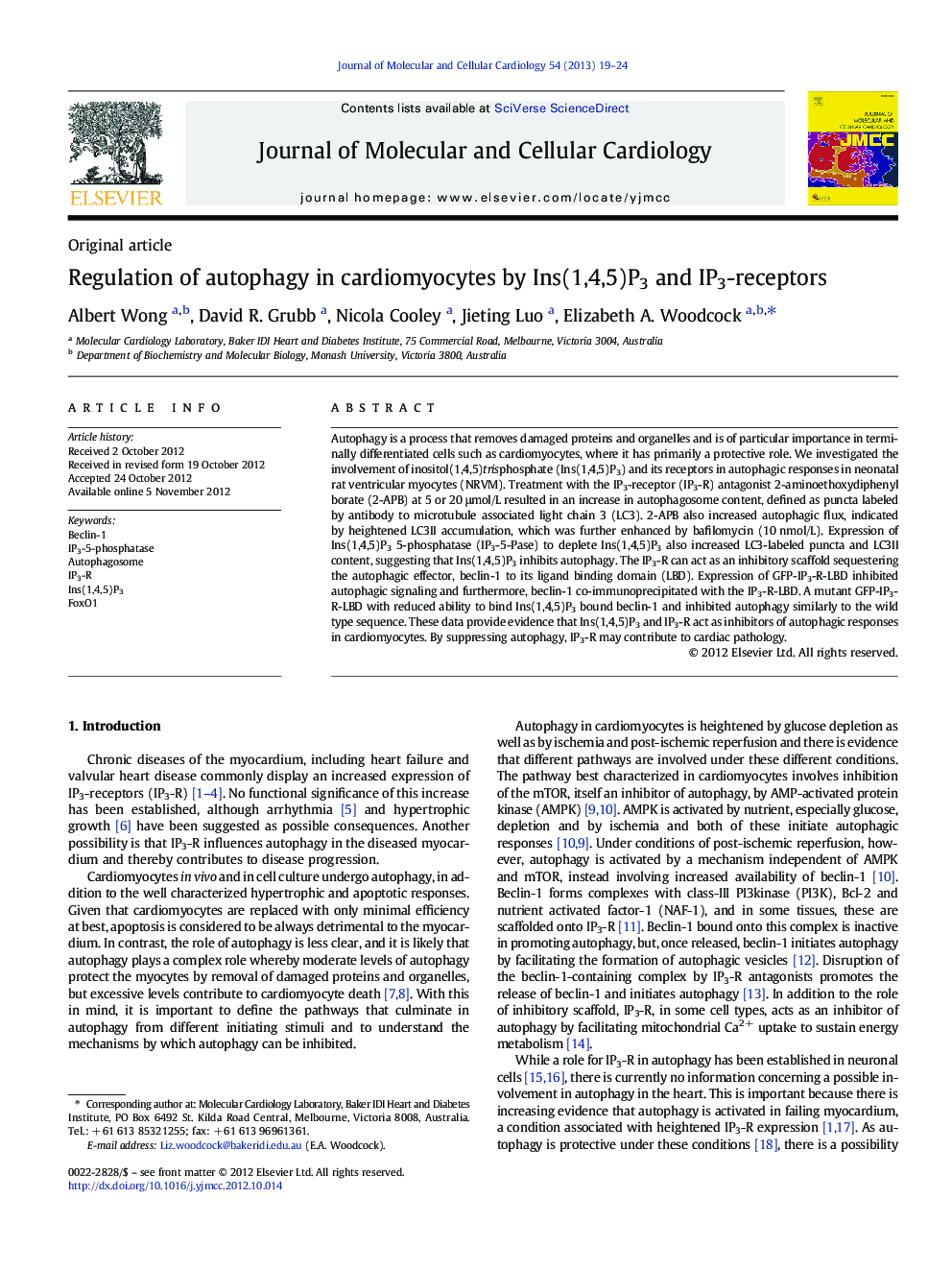| Article ID | Journal | Published Year | Pages | File Type |
|---|---|---|---|---|
| 2190594 | Journal of Molecular and Cellular Cardiology | 2013 | 6 Pages |
Autophagy is a process that removes damaged proteins and organelles and is of particular importance in terminally differentiated cells such as cardiomyocytes, where it has primarily a protective role. We investigated the involvement of inositol(1,4,5)trisphosphate (Ins(1,4,5)P3) and its receptors in autophagic responses in neonatal rat ventricular myocytes (NRVM). Treatment with the IP3-receptor (IP3-R) antagonist 2-aminoethoxydiphenyl borate (2-APB) at 5 or 20 μmol/L resulted in an increase in autophagosome content, defined as puncta labeled by antibody to microtubule associated light chain 3 (LC3). 2-APB also increased autophagic flux, indicated by heightened LC3II accumulation, which was further enhanced by bafilomycin (10 nmol/L). Expression of Ins(1,4,5)P3 5-phosphatase (IP3-5-Pase) to deplete Ins(1,4,5)P3 also increased LC3-labeled puncta and LC3II content, suggesting that Ins(1,4,5)P3 inhibits autophagy. The IP3-R can act as an inhibitory scaffold sequestering the autophagic effector, beclin-1 to its ligand binding domain (LBD). Expression of GFP-IP3-R-LBD inhibited autophagic signaling and furthermore, beclin-1 co-immunoprecipitated with the IP3-R-LBD. A mutant GFP-IP3-R-LBD with reduced ability to bind Ins(1,4,5)P3 bound beclin-1 and inhibited autophagy similarly to the wild type sequence. These data provide evidence that Ins(1,4,5)P3 and IP3-R act as inhibitors of autophagic responses in cardiomyocytes. By suppressing autophagy, IP3-R may contribute to cardiac pathology.
► IP3-receptor antagonists caused cardiomyocyte autophagy. ► Depleting Ins(1,4,5)P3 also increased autophagy. ► IP3-receptors inhibit autophagy by binding beclin-1 to the ligand binding domain. ► Ins(1,4,5)P3 may worsen pathology by inhibiting autophagy in the heart.
